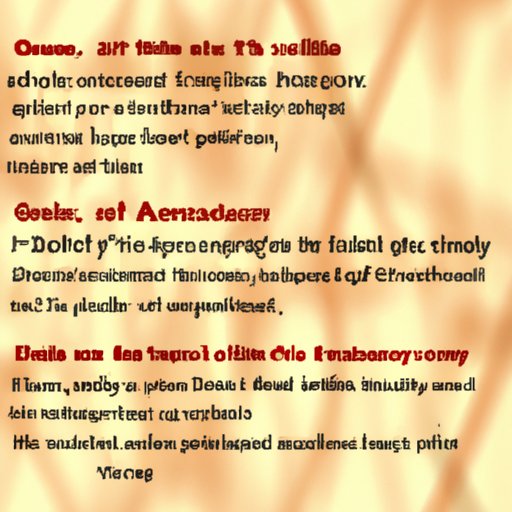Introduction
The concept of ‘God’ is one that has been debated for centuries, with people from all walks of life offering their opinions on the subject. But who actually invented the idea of God? This question has no straightforward answer, as the idea of a divine being has evolved over time, taking many different forms depending on the culture, religion and context in which it appears. In this article, we will explore the historical, theological and anthropological origins of the concept of God, to gain insight into how and why this powerful idea has endured throughout the ages.
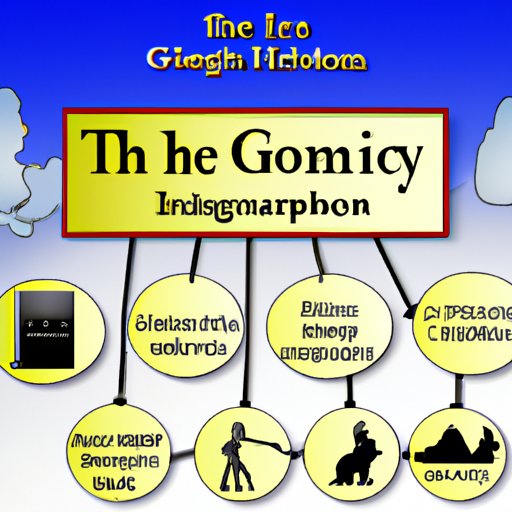
Historical Analysis of the Origins of God
To understand the concept of God, it is important to look at its historical roots. Ancient Mesopotamian and Egyptian religions featured polytheistic gods, including deities associated with nature, such as sun gods, moon gods, and fertility gods. These gods were believed to be powerful forces that controlled the lives of humans, and offerings were made to appease them.
In Greek mythology, there were twelve gods and goddesses known as the Olympians, each representing a different aspect of life. Norse and Roman gods also had their own unique characteristics, often associated with natural phenomena or war. These gods were widely worshipped throughout Europe, and they formed the basis of many of the myths and stories of the time.
As Christianity began to spread throughout Europe, the concept of a single God became more prominent. Monotheism – the belief in one God – emerged as the dominant form of religion, and this belief system continues to be practiced today.
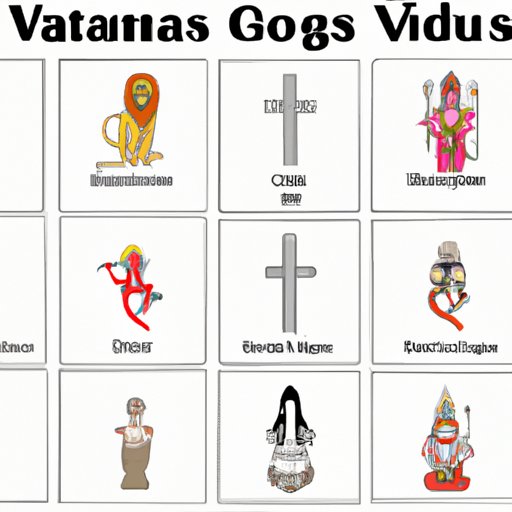
A Comparative Study of the Different Gods Across Cultures
When looking at the various gods that have been worshiped throughout history, there are some commonalities that can be observed. For example, most gods are seen as powerful beings that have control over the forces of nature, and can influence the lives of humans. They are also usually associated with particular symbols or objects, such as the sun or a thunderbolt, and these symbols are used to represent them in artwork and other forms of expression.
At the same time, there are also differences between the gods of different cultures. For example, while Greek gods may be seen as wise and benevolent, Norse gods are often depicted as more chaotic and unpredictable. Similarly, while some gods may be associated with love and fertility, others may be linked to death and destruction.
Exploring the Role of Mythology in Shaping Beliefs About God
Mythology has played an important role in shaping beliefs about God. Myths provide explanations for things that cannot be explained through science or reason, such as the origin of the universe or the power of nature. By creating stories that feature gods and goddesses, ancient cultures were able to make sense of the world around them and give meaning to their lives.
Myths have also been used to explain the relationship between humans and the divine. In many cultures, gods are seen as powerful yet benevolent figures who are willing to intervene in human affairs. This idea of a personal relationship between God and humans is something that has been reflected in religious texts and artwork throughout history.
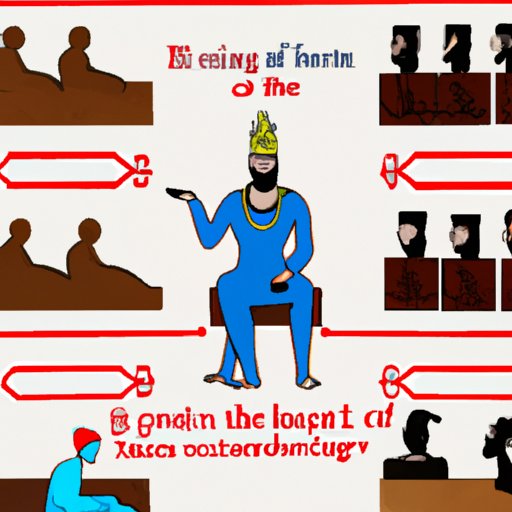
Investigating the Concept of a Supreme Being Throughout History
The idea of a supreme being, or a single god, has been present in many cultures throughout history. In Hinduism, for example, Brahman is seen as the ultimate reality from which all other gods and goddesses emerge. Buddhism also emphasizes the importance of an all-encompassing force, known as Dharmakaya or “body of truth”.
As Christianity began to spread throughout Europe, the concept of a single God became more prominent. Monotheism – the belief in one God – emerged as the dominant form of religion, and this belief system continues to be practiced today. While there are still variations within this belief system, such as those found in Judaism and Islam, the core idea of a single, all-powerful deity remains the same.
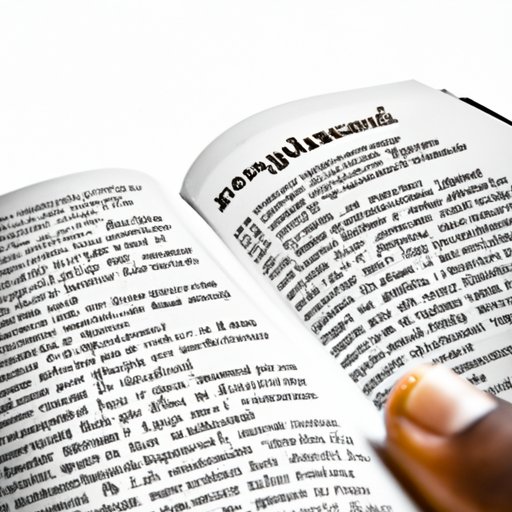
Examining the Religious Texts that Reference God
Religious texts play an important role in understanding the concept of God. The Bible, for example, is the foundational text of Christianity, and it offers insight into the nature of God and his relationship with humanity. The Bible tells the story of creation, outlines God’s laws, and describes his interactions with people throughout history.
The Quran, the central text of Islam, also offers insight into the concept of God. In the Quran, Allah is described as an omnipotent and omniscient being who created the universe and watches over its inhabitants. Similarly, other religious texts, such as the Vedas in Hinduism and the Torah in Judaism, contain references to a divine being that governs the world.
Theological Reflections on Who Invented God
The question of who invented God is one that has been debated by theologians for centuries. Some argue that God is an eternal being who has always existed, while others believe that God was created by humans in order to provide meaning and purpose in their lives.
Different denominations also have their own views on the matter. For example, some Christians believe that God is the creator of the universe, while others see him as an invisible force that exists outside of time and space. Meanwhile, some Muslims view Allah as the only true God, while others see him as one of many gods in a larger pantheon.
An Anthropological Perspective on the Development of Religious Ideas About God
From an anthropological perspective, it is clear that the concept of God has been shaped by culture and tradition. Rituals and ceremonies, such as those found in tribal societies, played an important role in developing beliefs about a supreme being. As these rituals evolved and spread to other cultures, they brought with them new ideas and concepts about God.
Similarly, the development of writing and literature allowed for a more sophisticated understanding of the divine. This enabled people to communicate their beliefs about God more clearly, and to share them with others. As these religious ideas spread, they took on different forms and meanings, depending on the culture and context in which they appeared.
Conclusion
The concept of God has evolved over time, taking many different forms depending on the culture, religion and context in which it appears. Ancient Mesopotamian and Egyptian gods, Greek and Norse gods, and the rise of monotheism all played a role in shaping the modern idea of God. Furthermore, the power of mythology and the development of religious texts have provided insight into the nature of God and his relationship with humanity. Finally, anthropology has revealed how culture and tradition have impacted the development of religious ideas about God. Ultimately, it is impossible to say definitively who invented the concept of God, but by exploring its historical, theological and anthropological origins, we can gain insight into how and why this powerful idea has endured throughout the ages.
(Note: Is this article not meeting your expectations? Do you have knowledge or insights to share? Unlock new opportunities and expand your reach by joining our authors team. Click Registration to join us and share your expertise with our readers.)
